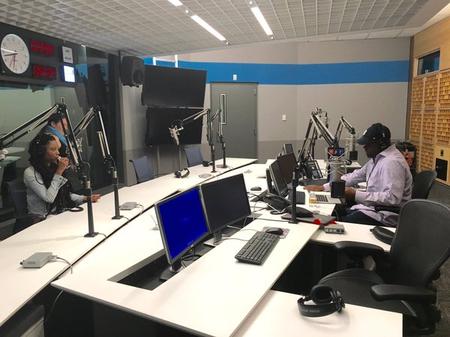D.C. Rapper Explores Tough Realities of Gentrification, Detroiters Respond
Tarica June’s songs examine tense relationship between “old” and “new” residents

“What people are choosing to invest in is very interesting to me,” says rapper Tarica June. “Like, they’re saying we need more dog parks. That’s because there are more people now who have dogs. And they’re more concerned about dogs, in my opinion, than they are about children.”
We hear a lot these days about revitalizing neighborhoods and cities after years of crumbling economies and rising crime. Areas of Detroit and Washington D.C. are almost unrecognizable after an influx of new development and investment in recent years.

But what happens to residents who have been living in those areas for years, or even generations? Is an economic comeback an entirely good thing if it’s forcing these people out?
Washington D.C. rapper Tarica June‘s song “But Anyway” recently went viral, sparking conversations across the country about the effects of gentrification. June speaks with Detroit Today host Stephen Henderson during a special broadcast from NPR headquarters in Washington D.C.
Here’s are some lyrics from “But Anyway”:
The city’s still filling up with those who dance off-beat
More than 140 characters, and all of them weak
They walk by, low eye, act like they can’t speak
They walk dogs–when I say that I don’t mean their feet
That’s cause they scared of their neighbors, them they don’t wanna meet
But anyway, this is third generation for me
My parents and my grandparents all from DC
So I feel like I notice things other folks can’t see
And like I represent things other folks can’t be
June says so much has changed about her neighborhood, where she grew up, in recent years. That includes the racial makeup of the area.
“D.C. was Chocolate City. That’s what we called it,” says June. “It was majority Black, and that has changed significantly.”
“I feel like there’s this attitude when the new residents are moving in – it’s not all of them – but that we don’t have to interact with the people who have been here forever,” she says.
June says new investment and development is not a bad thing, but it can be problematic if it’s not done right.
“The investment was needed. But I feel like the investment that has happened is geared towards people who don’t have families, necessarily. People who are younger, they’re affluent, they don’t have kids, they want to shop, they want to go out after work and get a beer. And that’s pretty much what they’re now seeing as culture. But, to me, it’s not sustainable,” says June.
People from all over the country have reached out, June says, saying they identify with her lyrics. That includes plenty of Detroiters.
“A lot of people from Detroit reached out to me or commented on the video and said, whoa, this is just like Detroit,” says June. “And I think the line, ‘They’re trying to kick us all out and just build more stores,’ I think people feel that way. There’s a disregard for the fact that we live here because there’s the idea that this is just a development opportunity.”
To hear the entire conversation with D.C. rapper Tarica June on Detroit Today, click on the audio link above.
Here is June’s video for “But Anyway”:
